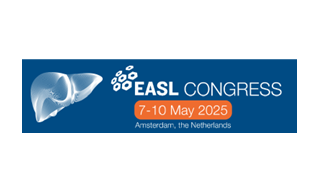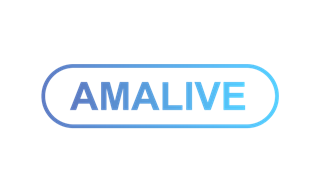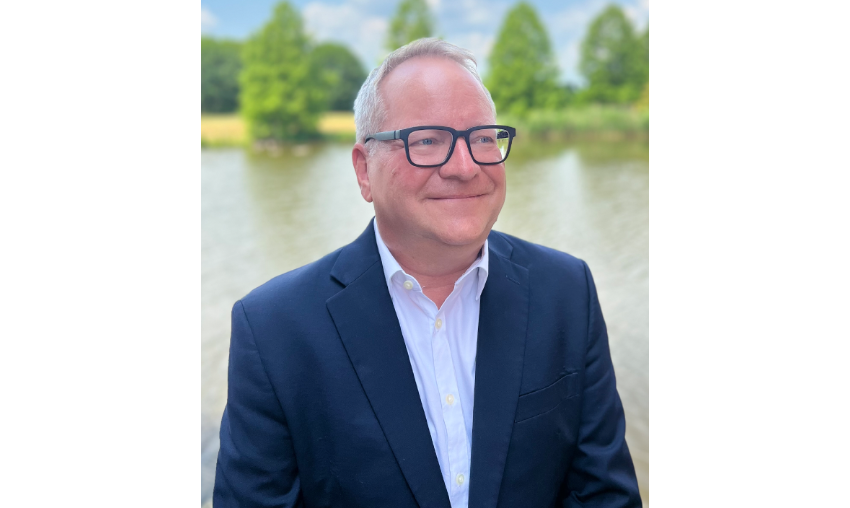London, UK, 7 January 2021 – Yaqrit, a clinical stage life sciences company focused on developing potentially innovative treatments for patients with advanced liver disease in areas of high unmet medical need, today announces preliminary results from its randomised controlled clinical trials for two potential therapies from its pipeline of product candidates designed to address each stage of liver disease, from diagnosis of decompensated cirrhosis in an outpatient setting, to critically ill patients in intensive care.
Spun out of UCL in 2014, Yaqrit has a deep-rooted academic heritage built on 20-years of pioneering research led by the members of the university’s Liver Failure Group. The Company’s lead scientific founder, Professor Rajiv Jalan, is a world-renowned hepatologist who has pioneered the evolving science and discovery of the mechanisms underlying advanced liver disease.
Both clinical trials were run by EU-funded academic-industrial consortia composed of partners from eight countries across Europe including Yaqrit, UCL, the European Foundation for the Study of Chronic Liver Failure (EF CLIF) and the European Association for the Study of the Liver (EASL) among others.
Professor Rajiv Jalan M.D., lead scientific founder of Yaqrit, Project Coordinator of the CARBALIVE and ALIVER consortia and an inventor of both Carbalive™ and Dialive™, commented: “Working on the frontline treating patients with chronic liver disease on a daily basis I see first-hand the huge unmet need for new therapies to treat this global public health problem. More than 800 million people worldwide are estimated to suffer from chronic liver disease1 and treatment innovation is desperately needed. With Carbalive™ and Dialive™ we have two potential breakthrough treatments that could radically transform the way we treat liver disease and offer the potential to save many lives.”
Carbalive™, being developed by the CARBALIVE consortium, is an orally-administered, non-absorbable engineered carbon of controlled porosity, intended to treat patients with cirrhosis, a condition with over 100 million cases globally2 in 2017 and accounting for the deaths of about one million patients each year.3 The microscopic design of the Carbalive™ beads, which adsorb both large and small molecules in the gut, emerged from research into the importance of gut bacteria in the inflammation that accompanies cirrhosis. The randomised controlled, double-blinded clinical trial of Carbalive™ investigated its safety and tolerability, compared to placebo, over a three month treatment period in adults with stable decompensated alcohol-related cirrhosis, who had been abstinent from alcohol for the previous four weeks. Carbalive’s™ design is based on research led by Professor Rajiv Jalan, Dr Jane Macnaughtan and members of the Liver Failure Group at UCL.
Preliminary results of the trial, which included 14 patients in each arm (Carbalive™ and placebo) with 13 completing with Carbalive™ and 10 completing with placebo, showed that:
- Carbalive™ was safe and well tolerated, with compliance of greater than 90%.
- Patients experienced trends in improvements of a wide range of biomarkers of systemic inflammation and improved gut-specific health compared to those on placebo.
- These improvements were associated with trends towards reduction in the markers of gut inflammation, less permeability (leakiness) of the gut wall and improvement of gut bacterial flora – characteristic problems associated with cirrhosis and its complications.
Dialive™, being developed by the ALIVER consortium, is a potential treatment for patients with liver failure for whom there are no specific approved therapies apart from liver transplantation. The patented dual filtration system, which can be delivered using a kidney dialysis machine, includes two specialised filters – one to remove blood-borne products of liver failure, such as products of cell death and bacterial toxins, and the other to remove albumin that is damaged and toxic when the liver fails. The damaged albumin is then replaced with fresh albumin. Dialive’s™ design is based on research led by Professor Rajiv Jalan, Professor Nathan Davies and members of the Liver Failure Group at UCL.
The randomised controlled trial investigated the potential of Dialive™ in patients with a history indicative of alcohol-related cirrhosis suffering from multiorgan failure, a condition referred to as acute-on-chronic liver failure (ACLF). ACLF is characterised by systemic inflammation and associated with single or multiple organ failure. The result is a high short-term risk of death. In ACLF patients (grades 2 or 3), 28-day mortality can be as high as 88.9%4 depending on the number of organs failing. Preliminary results of the trial, which included 15 patients in each arm (Dialive™ and placebo), showed that:
- Safety was confirmed with no significant differences in serious adverse events (SAEs) between the control and study group.
- More patients receiving Dialive™ treatment resolved to a “no-ACLF” status than the control arm and they resolved faster (p=0.03).
- Dialive™-treated patients showed improvement in a panel of biomarkers thought to be associated with severe cytokine storm and organ failure in ACLF. These showed statistically significant benefits for patients on Dialive™ compared to the control arm, 10 days after the start of the treatment protocol of three to five sessions of eight to 12 hours per day.
Daniel Green, Chief Executive Officer of Yaqrit, commented: “Yaqrit’s mission is to develop a package of therapies to prevent, treat and reverse the advanced stages of chronic liver disease. We believe that results from these two trials set us firmly on our way to achieve just that. We were honoured to work alongside some of the world’s leading hepatologists and liver disease scientists and we look forward to progressing both products through European pivotal studies and bringing these treatments to patients.”
Anne Lane, CEO of UCL Business, UCL’s commercialisation company, said: “The development of two life-changing therapies has the potential to have huge real-world impact on the millions of people who suffer from cirrhosis or liver failure. The work of Rajiv and his team is a great example of how university research can be transformed into pioneering technology that helps improve people’s lives. Universities will continue to champion and commercialise progressive research in order to uncover new ways of making positive societal impact.”
Yaqrit holds the intellectual property and commercial rights for both potential therapies and, subject to sufficient funding, intends to conduct randomised placebo-controlled European pivotal trials for Carbalive™ and Dialive™ beginning in 2021. The Company also plans to pursue investigation of Carbalive™ in further indications and to engage consultants in 2021 to advise as to the potential regulatory pathway for Carbalive™ in the US.
The conclusions and preliminary trial results set forth in this announcement remain subject to finalising the remaining data analyses, the statistical and clinical study reports and, therefore, may change. Full results from both trials will also be submitted for peer reviewed publication in a leading scientific journal.
The CARBALIVE and ALIVER consortia received funding from the European Union’s Horizon 2020 research and innovation programme under grant agreement No 634579 (CARBALIVE) and agreement No 733057 (ALIVER).
-ENDS-
For media enquiries:
Consilium Strategic Communications
Amber Fennell, David Daley, Angela Gray
Tel: +44 (0) 20 3709 5700
Email: yaqrit@consilum-comms.com
Notes
About CarbaliveTM
CarbaliveTM is designed to remove harmful bacterial toxins from the gut before they leak to the liver. These engineered macroporous carbon beads, which are orally administered and designed to adsorb and remove lipopolysaccharides (LPS) from the gut without killing beneficial bacteria, are intended to prevent further progression and to treat decompensated cirrhosis (also known as decompensated liver disease), a condition with 10.6 million cases globally in 2017. If an imbalance of bacterial toxins occurs in the gut, the gut may become inflamed and the gut wall may be compromised, causing the toxins to leak into the liver. In the liver, the toxins trigger a cascade of responses from the immune system that include inflammation and the death of liver cells. Over the long-term, this may result in the scarring that is characteristic of cirrhosis and could ultimately progress to decompensation and liver failure. By removing the harmful toxins from the gut before they leak into the liver, CarbaliveTM is intended to prevent recurrence or progression of liver decompensation in targeted patients with cirrhosis.
About the CARBALIVE Consortium
Humans have nearly 10 trillion intestinal bacteria. This is the gut microbiome, which both plays an important role in human health and is the largest reservoir of antigens and bacterial products in the body. If the gut is damaged, as is the case in liver disease, the bacterial products can leak from the gut to the liver where they cause inflammation and injury. These changes happen in chronic liver disease (such as NASH) and in cirrhosis. In advanced cirrhosis, this bacterial translocation is linked to infections such as spontaneous bacterial peritonitis, which are associated with early death. Gut microbes also play a role in the progression of fatty liver disease to advanced liver disease, and it is these challenges that the CARBALIVE consortium was established to address. The Carbalive consortium has received funding from the European Union’s Horizon 2020 research and innovation programme under grant agreement No 634579.
For more information visit www.carbalive.eu
About DialiveTM
DialiveTM is a novel liver failure treatment device designed to reverse the accumulation of protein-bound toxins and increased susceptibility to infection caused by liver failure, for which liver transplantation is the main alternative treatment. The DialiveTM device, protected by patents in a variety of jurisdictions, incorporates albumin removal and replacement and endotoxin removal.
About the ALIVER Consortium
The ALIVER consortium includes many of Europe’s leading experts in liver failure and the hospitals where they work, small and medium-sized enterprises (SMEs) and not-for-profit organisations, with 25 years of experimental research and data collection exploring extracorporeal liver support in liver failure. DIALIVE research has received funding from the European Union’s Horizon 2020 research and innovation programme under grant agreement No 733057.
For more information visit www.aliver.info
About UCL Business (UCLB)
UCL Business Ltd (UCLB), part of UCL Innovation & Enterprise, is the commercialisation company for UCL. Working with UCL’s globally renowned faculties and associated hospitals; University College London Hospitals, Moorfields Eye Hospital, Great Ormond Street Hospital for Children and the Royal Free London Hospital, it brings together exceptional ideas, innovations and industry to benefit society and the economy.
UCLB’s track record of success includes over £1.5 billion raised in investment for UCL spinouts, and its Portico Ventures Programme is enabling the next wave of technology-based businesses to thrive in a fast-moving ecosystem.
About UCL – London’s Global University
UCL is a diverse community with the freedom to challenge and think differently.
Our community of more than 41,500 students from 150 countries and over 12,500 staff pursues academic excellence, breaks boundaries and makes a positive impact on real world problems.
We are consistently ranked among the top 10 universities in the world and are one of only a handful of institutions rated as having the strongest academic reputation and the broadest research impact.
We have a progressive and integrated approach to our teaching and research – championing innovation, creativity and cross-disciplinary working. We teach our students how to think, not what to think, and see them as partners, collaborators and contributors.
For almost 200 years, we are proud to have opened higher education to students from a wide range of backgrounds and to change the way we create and share knowledge.
We were the first in England to welcome women to university education and that courageous attitude and disruptive spirit is still alive today.
We are UCL.
www.ucl.ac.uk| Follow @uclnews on Twitter | Watch our YouTube channel | Listen to UCL podcasts on SoundCloud | Find out what’s on at UCL Minds | #MadeAtUCL
Find out how UCL is helping lead the global fight against COVID-19 www.ucl.ac.uk/covid-19-research
About Yaqrit
Yaqrit is a clinical stage life sciences company focused on developing potentially innovative treatments for patients with advanced liver disease in areas of high unmet medical need. The Company was founded by internationally renowned hepatologist Professor Rajiv Jalan of UCL, who has more than two decades of clinical, academic and research experience in treating patients with chronic liver disease. With his guidance, the Company has developed a clinical stage pipeline led by three programs: Carbalive and Dialive, both of which have complete randomised controlled clinical trials, and TLR4 antagonists, the most advanced of which is being developed by Akaza Bioscience, a joint venture with Takeda Pharmaceutical and Zenios Bioscience. These programs are designed to address unmet medical needs across the advanced stages of chronic liver disease from medically stable patients with decompensated cirrhosis in the outpatient setting, to critically ill, hospitalised patients with acute-on-chronic liver failure (“ACLF”). The application of the different therapeutic approaches to specific patient groups is based upon the Company’s deep understanding of the disease pathway and stratification of patients with chronic liver disease. For more information visit www.yaqrit.com
The contents of this announcement include statements that are, or may be deemed to be, “forward-looking statements”. In some cases, forward-looking statements can be identified by the use of forward-looking terminology, including the words “believes”, “estimates,” “anticipates”, “expects”, “intends”, “may”, “will”, “plans”, “continue”, “ongoing”, “potential”, “predict”, “project”, “target”, “seek” or “should” or, in each case, their negative or other variations or comparable terminology or by discussions of strategies, plans, objectives, targets, goals, future events or intentions. Forward-looking statements include statements regarding the Company’s intentions, beliefs or current expectations concerning, among other things, prospects, growth, strategies and the industry in which the Company operates. By their nature, forward-looking statements involve risks and uncertainties. Forward-looking statements are not guarantees of future performance. Given these risks and uncertainties, the reader should not rely on forward-looking statements as a prediction of actual results. Without prejudice to the Company’s obligations under applicable law in relation to disclosure and ongoing information, the Company does not intend, and does not assume any obligation, to update forward-looking statements.
References
Ntandja-Wandji L. C. et al. (2020). Combined alcoholic and non-alcoholic steatohepatitis. JHEP Reports.
Sepanlou S. et al. (2020). The global, regional, and national burden of cirrhosis by cause in 195 countries and territories, 1990–2017: A systematic analysis for the Global Burden of Disease Study 2017. The Lancet Gastroenterology & Hepatology.
Asrani et.al. Burden of Liver Disease in the World. J Hepatol 2019 Jan;70(1):151-171).
Arroyo V, Moreau R, Jalan R. Acute-on-Chronic Liver Failure. N Engl J Med. 2020 May 28;382(22):2137-2145.

![]()
Yaqrit’s mission is to develop a package of therapies to prevent, treat and reverse the advanced stages of chronic liver disease. We believe that results from these two trials set us firmly on our way to achieve just that.






